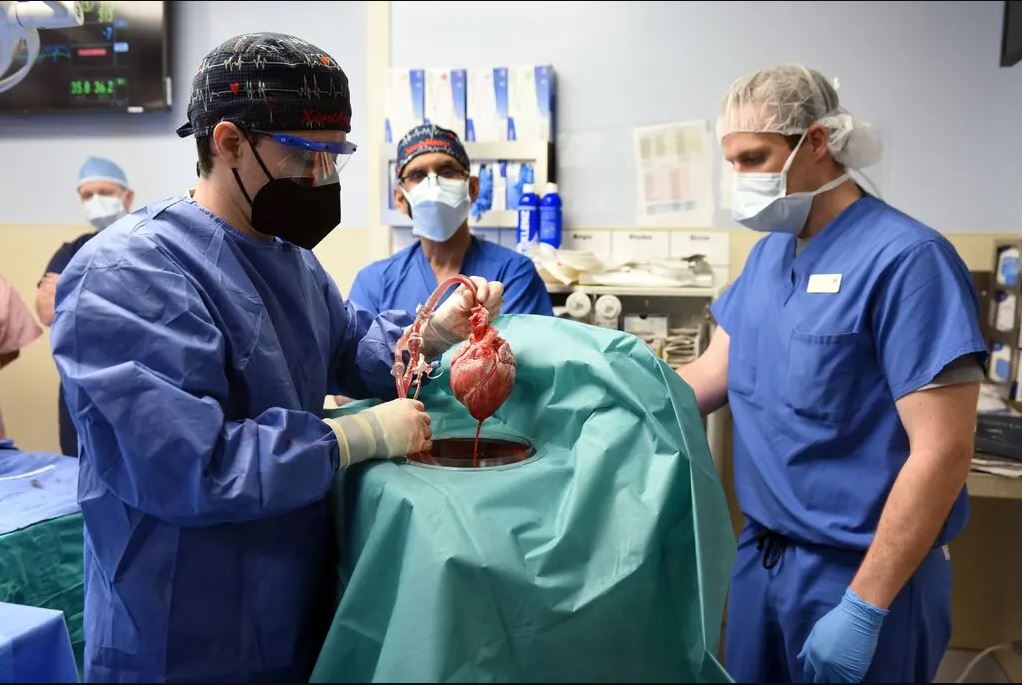He died on Tuesday afternoon at the University of Maryland Medical Center, two months after having his failing heart replaced with that of a genetically modified pig in a ground-breaking procedure.
David Bennett Sr., who resided in Maryland, died at the age of 57. He had serious heart disease and had accepted to get the experimental pig’s heart after being rejected from many waiting lists for a human heart. He had been suffering from the ailment for a long time.
Although it was not obvious whether or not his body had rejected the alien organ, doctors were hopeful.
Hospital authorities said that they were unable to provide any more information on the cause of death since his doctors had not yet completed a comprehensive investigation. In the near future, they want to publish the findings in a peer-reviewed medical publication.
It was one of many groundbreaking surgeries carried out in recent months in which organs from genetically engineered pigs were utilised to replace organs in people. The heart transplant was one of those procedures. The procedure, known as xenotransplantation, provides fresh hope for tens of thousands of patients who are suffering from failing kidneys, hearts, and other organs, since there is a severe lack of donated organs available.
Initially, Mr. Bennett’s transplant was judged a complete success. Because the pig’s heart was not instantly rejected and continued to operate for more than a month, it is still regarded a big step forward and represents a huge achievement for transplant patients.
According to the United Network for Organ Sharing, a non-profit organisation that organises the nation’s organ procurement operations, 41,354 Americans got a transplanted organ last year, with kidneys accounting for more than half of the total.
However, there is a severe scarcity of organs, and a dozen or more individuals on waiting lists die every day as a result of this shortage. Last year, around 3,800 Americans got human donor hearts as replacements, a record number compared to previous years, but the need remains strong.
Scientists have been attempting to create pigs whose organs would not be rejected by the human body for more than a decade, a research endeavour that has gained momentum in recent years as a result of advances in gene editing and cloning technology.
In October, doctors in New York revealed that they had successfully linked a kidney developed in a genetically engineered pig to a brain-dead human patient, discovering that the organ functioned correctly and generated urine for 54 hours after being implanted.
An announcement was made in January by surgeons from the University of Alabama in Birmingham that they had for the first time successfully transplanted kidneys from a genetically modified pig into the abdomen of a man who was 57 years old and had died from brain death. For three days, the kidneys continued to work and generate urine.
The transplanted heart initially worked well, and there were no symptoms of rejection for many weeks after the procedure. According to hospital authorities, Mr. Bennett spent time with his family, participated in physical therapy, and watched the Super Bowl.
However, he was not released from the hospital, and his health began to worsen a few days later, according to medical authorities.
His son made a statement in which he expressed gratitude to the hospital and its employees for their tireless efforts on his father’s behalf.

